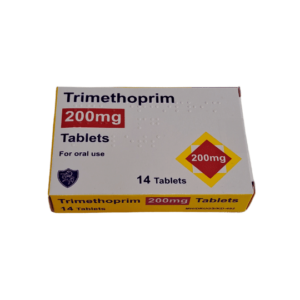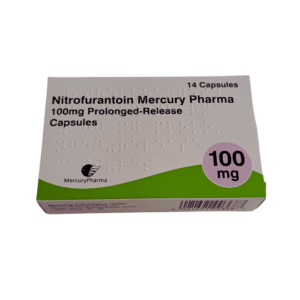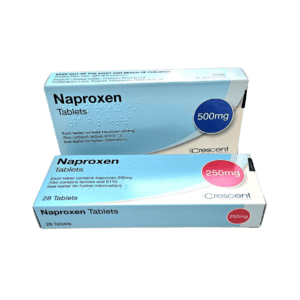Cystitis is a common infection of the urinary tract, specifically the bladder. It is more common in women than in men, and it can cause a range of symptoms, including:
Cystitis is most commonly caused by a bacterial infection, with Escherichia coli (E. coli) being the most common culprit. Other types of bacteria that can cause cystitis include Staphylococcus saprophyticus and Klebsiella pneumonia.
Treatment for cystitis typically involves antibiotics to eliminate the bacteria causing the infection. The type of antibiotic prescribed will depend on the severity of the infection and the individual’s medical history. Some commonly prescribed antibiotics for cystitis include nitrofurantoin or trimethoprim.
Pain relief medications, such as paracetamol and ibuprofen, may also be recommended to alleviate the discomfort associated with cystitis. However, it’s important to note that these medications do not treat the underlying infection.
In addition to antibiotics and pain relief medications, there are a few self-care measures that can help alleviate symptoms of cystitis, including:
It’s important to note that if you suspect you have cystitis, you should see a doctor to get an accurate diagnosis and appropriate treatment. Left untreated, cystitis can lead to more serious complications, such as a kidney infection.
In summary, cystitis is a common infection of the bladder that can cause a range of uncomfortable symptoms. Treatment typically involves antibiotics to eliminate the bacterial infection, pain relief medications, and self-care measures to alleviate symptoms. If you suspect you have cystitis, it’s important to see a doctor for an accurate diagnosis and appropriate treatment.
Don’t suffer in silence. Get the treatment you need without the need to see your GP.
At Online Chemist, we offer a convenient and confidential way to get the antibiotics you need to treat your cystitis.
Simply complete our online consultation form and one of our qualified clinicians will assess your symptoms and prescribe the appropriate treatment.
So why wait? Order cystitis antibiotics treatment online and start feeling better today.



The length of time it takes for antibiotics to treat cystitis depends on the individual and the severity of the infection. Most people start to feel better within a few days of starting treatment, but it’s important to complete the full course of antibiotics to ensure that the infection is fully cleared.
Yes, over-the-counter painkillers such as paracetamol and ibuprofen can help to alleviate the pain associated with cystitis.
However, it’s important to note that these medications do not treat the underlying infection and should not be relied upon as the sole treatment for cystitis.
While some cases of cystitis may resolve on their own without antibiotics, it is generally recommended to see a doctor to get an accurate diagnosis and appropriate treatment. Left untreated, cystitis can lead to more serious complications, such as a kidney infection.
It is generally recommended to avoid alcohol while taking antibiotics for cystitis. Alcohol can interfere with the effectiveness of antibiotics and may increase the risk of side effects.
It’s generally recommended to avoid sexual activity until the infection has cleared, as sexual activity can increase the risk of spreading the infection and may exacerbate symptoms. Once the infection has cleared, it’s important to practice safe sex and maintain good genital hygiene to reduce the risk of recurrence.
Complete consultation for your selected condition and order your medication.
Please answer the health questionnaire honestly, this will ensure that the medication you are requesting is right for you.
The UK registered prescriber will review your questionnaire and approve your order. In some cases, the prescriber may specify a preferred treatment.
Your treatment will be sent directly from our NHS online pharmacy, Online Chemist based in Norfolk.
The General Pharmaceutical Council (GPhC) and other UK health organisations have produced a handy guide to help people going online for medicines or treatment.
Read the guideline here
If you have a medical emergency do not use this service.
Please contact your own GP, visit Accident and Emergency or call 999 or 111 immediately.

Online Chemist
82 Middleton Road
Gorleston
Great Yarmouth
Norfolk, NR31 7AH
Phone: 01493 600610
Email: info@onlinechemistuk.net
Superintendent Pharmacist:
Obaidullah Zaman
BPharm, MPharm, PGDip (Pharmacy), MRPharmS, IP
GPhC Reg. Number: 2083409
Pharmacy Premises GPhC Reg. Number: 9011159
Monday 09:00 – 17:00
Tuesday 09:00 – 17:00
Wednesday 09:00 – 17:00
Thursday 09:00 – 17:00
Friday 09:00 – 17:00
Saturday Closed
Sunday Closed
Click here for driving directions
OnlineChemist is a trading name of Nomaz Limited.
Registered in England – 11349276.
© 2025 All rights reserved.